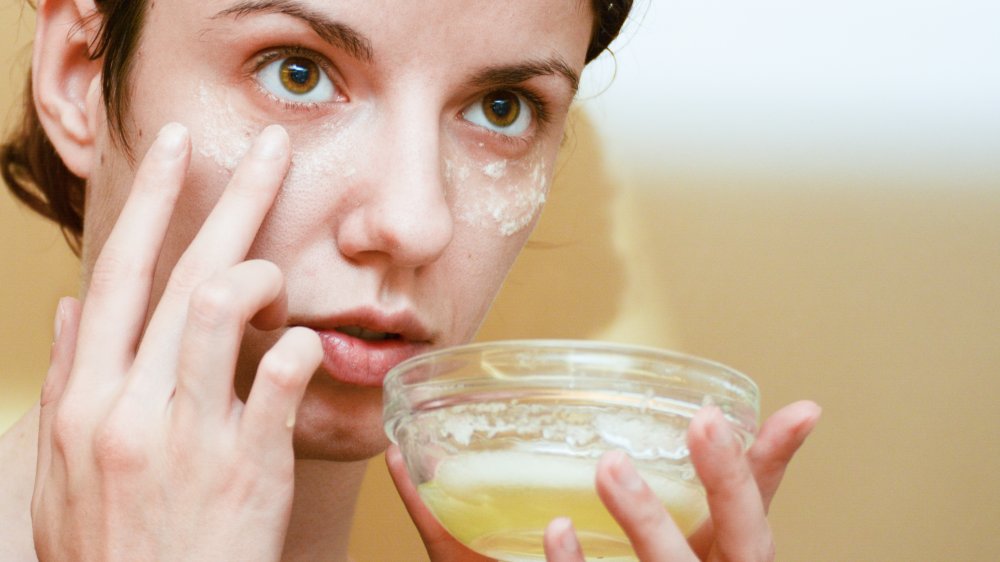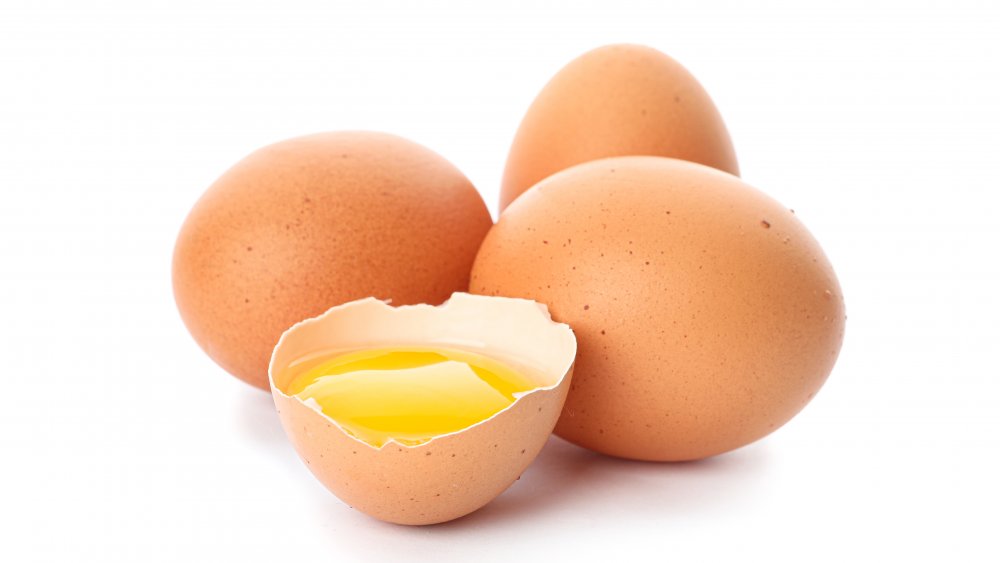What You Should Know Before Putting Egg Whites On Your Face
Chances are, if you've done any research into homemade skincare solutions, whether to save some money or out of a passion for clean ingredients, you've probably come across at least one face mask recipe that included, or consisted entirely of, egg whites. There are a few reasons for this: first, when egg whites dry on the skin they provide a tightening sensation, which some associate with tightening the skin or shrinking the pores (via Medical News Today). Secondly, they're rich in protein and lysozyme, an enzyme with antimicrobial properties, making them a potentially beneficial treatment for acne (via Byrdie). Not only that, but the whites are also slightly astringent, meaning they can help draw dirt and excess oil out of the pores, and even act as a humectant, meaning they temporarily plump up the skin.
However, before you go raiding the fridge, there are a few reasons to be cautious when it comes to these skincare claims. For one thing, anything you may have read about egg whites containing essential vitamins or minerals that can boost the skin is poppycock; they're essentially just protein and water (via The Derm Review). Secondly, they won't do anything to actually tighten your pores or plum up the skin in the long term; these results are purely temporary (via Buzzfeed). But, these aren't the only reasons to think twice about egg white masks.
The potential dangers of using egg white face masks
Although your parents always seemed like total buzzkills for not letting you eat raw cookie dough, there was a reason behind their nagging. Not unlike the tempting taste of cookie dough, applying uncooked egg whites to your face could result in a nasty case of food poisoning, thanks to that pesky pathogenic bacterium: Salmonella. Salmonella can enter your system if it's accidentally ingested (which is easier than you might think, especially when the mask is a drippy mess).
Not only that, but those who are allergic or sensitive to eggs could have a negative reaction just from applying the whites to their face, and virtually anyone could develop skin irritation from this DIY ingredient (via Healthline).
If you're determined to try egg white face masks for yourself, at the very least, do a patch test first to ensure you don't have a negative reaction (via Yahoo! Life). Also, choose eggs that are pasteurized to reduce the risk of Salmonella, and do some research into the other ingredients in the mask to ensure they don't carry their own potential risks (via Slate).

